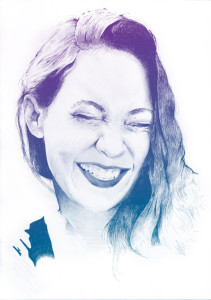Taking psychedelic drugs is a bit like having children: not everyone should try it.
Now, I know the metaphor seems strained. The ingestion of one can cause brain damage, madness and death. The expulsion of the other allows our species to continue pattering over this little planet. But hear me out.
New parents expound on the joys of having babies with a zealousness that is tiresome if you have no desire to do the same. Some of us are capable of living happy lives without becoming parents. We spare ourselves the risk of injury or death in childbirth — or the crippling loss of a child. Moreover, we spare children the burden of shitty parents. Not everyone is fit to have kids: fact. And perhaps the world would be a better place if fewer of us did.
But, breathless parents intone, you’ll never understand true love, or the meaning of your own mortality, until you hold your first baby. You’ll never experience the full spectrum of what it means to be human.
Yet it’s also true that tee totalers — risk-free as their perceptual landscape may be — will perhaps never experience the full spectrum of what their brain has to offer. They will possibly never quite see through space and time, appreciate the interconnectedness of all things, or experience that same form of liberating ego loss, the kind that enhances their understanding of the meaning of mortality. Both drugs and parenthood can change your perspective on the world in powerful ways that just cannot be matched.
And here’s where the analogy comes in: not everyone should do drugs. But some people should.
Trust me, I’ve given this a lot of thought. Before researching for my book Sex, Drugs and Rock ’n’ Roll, I deeply pondered the highs and lows of narcotics. I grew up in the music industry, raised by frequently sketchy parents. Then as an adult, working in the music industry myself, I saw ugly things. Working a rave, I met a teen who lost two limbs when he was fucked on E, climbed a hydroelectric pole and grabbed the live wires. I saw with my own eyes a friend take LSD, walk through a door in her mind — and never come back. I have seen girls eviscerate their vaginas over years of ketamine addiction.
Yet for some, drugs can be astoundingly enriching in ways that no other chemical, physical or emotional treat can match.
Fans of psychedelics frequently say they enhanced their capacity to understand the intricacy of the universe in ways nothing else ever could. Few coke heads will defend their drug of choice with fervent zeal. But trippers will extol the virtues of LSD with an adulation that matches the passion of a new parent.
You’ve probably heard a breathless proclamation or two on the power of acid to reveal the beauty of the cosmos, but perhaps Albert Hoffman, nerd supreme and the creator of LSD, put it most succinctly after his first trip: “The world was as if newly created.”
Full disclosure: smoking DMT was one of the most beautiful experiences of my entire life, on a par with losing my virginity. I smoked three grains of the world’s strongest hallucinogen on a hill in Devon, and found myself covered in grasshoppers. They gently crawled over my naked belly, as if I had become one with the earth. (This was not a hallucination. Five sober witnesses saw it happen.) Then for 15 minutes I gazed at the sea, clouds and grass, saw them dance with each other, and understood “the interconnectedness of all things” in a way I have never before — or since.
But here’s where it gets more interesting — and important. Beyond recreational enrichment, medical studies are proving that psychedelic drugs can profoundly heal the scars of the human experience. War vets and rape victims given MDMA are recovering from the scars of PTSD in unprecedented ways. Alcoholics are finding that LSD trips can snap them out of their stupor. The African plant Ibogaine can help heroin addicts kick the junk, quickly, without spending years malingering on methadone. And perhaps most poignant: terminally ill patients awaiting death are discovering that magic mushrooms are helping them cope profoundly with the fear, and enjoy their last days as best they can. Could any drugs naysayer, no matter how dogmatic, argue with using psychedelics to ease the pain for which there is just no cure?
Most authorities dislike (publicly at least) that we use drugs, but if history — and biology — have taught us anything, drugs are never, ever going away. Rather than trying to stamp them as an ineradicable vice, we ought to consider that some people are truly better off having them in their lives.
We know that taking them can change your perspective on the world — but it’s more important now that we change our perspective on their place in this world.
Sex Drugs and Rock ’n’ Roll: The Science of Hedonism and the Hedonism of Science is published by Profile Books.
